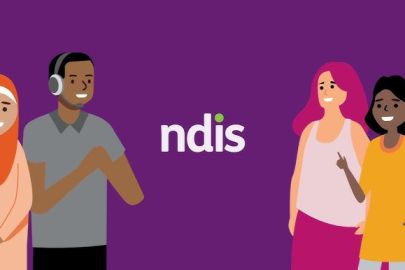Service Providers for Your NDIS Plan: Finding the Right Fit
Choosing the right service providers is a crucial aspect of managing your National Disability Insurance Scheme (NDIS) plan. The quality and suitability of the services you receive can significantly impact your ability to achieve your goals and enhance your quality of life. This article provides a comprehensive guide on finding and selecting the best service providers for your NDIS plan, including what to look for, types of providers, and practical tips for making informed decisions.
Understanding NDIS Service Providers
NDIS service providers are organizations or individuals that deliver a range of supports and services to NDIS participants. These providers play a vital role in helping you access the assistance you need to achieve your goals and live more independently.
Types of NDIS Service Providers
NDIS service providers fall into several categories, each offering different types of support. Understanding these categories can help you identify which providers best match your needs.
1. Core Supports Providers
Core Supports Providers offer services that help with daily living activities and participation in the community. These include:
Personal Care Services: Assistance with personal hygiene, dressing, and other daily activities.
Household Tasks: Support with cleaning, meal preparation, and other household chores.
Community Participation: Help with attending social events, recreational activities, and community engagement.
Transport Services: Assistance with travel to appointments, shopping, and other essential activities.
2. Capacity Building Providers
Capacity Building Providers focus on helping you develop skills and increase your independence. These providers offer:
Skill Development: Training and support to build life skills such as communication, problem-solving, and budgeting.
Employment Services: Assistance with finding and maintaining employment, including job coaching and workplace modifications.
Therapeutic Supports: Services from allied health professionals, such as physiotherapy, occupational therapy, and psychology.
Educational Supports: Access to educational programs and training opportunities.

3. Capital Supports Providers
Capital Supports Providers provide high-cost items and modifications to enhance independence. These include:
Assistive Technology Providers: Suppliers of devices and equipment, such as wheelchairs, communication aids, and hearing aids.
Home Modifications Specialists: Professionals who modify homes to improve accessibility, such as installing ramps or grab rails.
Vehicle Modifications Experts: Providers who adapt vehicles for accessibility, including hand controls or wheelchair lifts.
Choosing the Right Service Provider
Selecting the right service provider involves considering several key factors to ensure that their services align with your needs and goals.
1. Assess Your Needs and Goals
Before choosing a provider, clearly define your needs and goals. Consider:
Personal Requirements: What specific support or services do you need? How do these align with your NDIS plan goals?
Desired Outcomes: What outcomes are you hoping to achieve with the support? Are you focusing on improving daily living skills, finding employment, or obtaining assistive technology?
2. Research and Compare Providers
Once you’ve identified your needs, research potential providers to find the best match. Key steps include:
Check Provider Listings: Use the NDIS Provider Finder tool on the NDIS website to find registered providers in your area.
Read Reviews and Testimonials: Look for feedback from other participants to gauge the quality and reliability of the provider.
Compare Services: Evaluate the range of services offered, the qualifications of staff, and any additional benefits or supports provided.
3. Evaluate Provider Quality and Fit
Choosing a provider that offers high-quality services and fits well with your personal preferences is essential. Consider:
Qualifications and Experience: Ensure that the provider’s staff have the necessary qualifications, experience, and expertise to meet your needs.
Service Flexibility: Look for providers that offer flexible service arrangements and are willing to tailor their support to your preferences.
Communication and Support: Assess how well the provider communicates and supports you, including their responsiveness to inquiries and willingness to address concerns.
4. Understand the Costs and Funding
It’s important to understand the costs associated with each provider and how they align with your NDIS funding. Key considerations include:
Fee Structures: Review the provider’s fee structure and ensure that it aligns with your NDIS plan budget.
Billing and Invoicing: Understand how the provider handles billing and invoicing, and ensure that their processes are transparent and efficient.
Funding Limits: Check that the services provided fall within the funding limits specified in your NDIS plan.
Managing Your Relationship with Service Providers
Effective management of your relationship with service providers is crucial for ensuring that you receive the best possible support.
1. Set Clear Expectations
Clearly communicate your expectations and goals to your provider. This includes:
Service Requirements: Outline the specific services and supports you need.
Goals and Outcomes: Discuss your goals and desired outcomes to ensure alignment with the provider’s services.
2. Monitor and Review Services
Regularly review the services provided to ensure they continue to meet your needs. This involves:
Tracking Progress: Monitor your progress towards achieving your goals and assess the effectiveness of the support.
Providing Feedback: Share your feedback with the provider to address any issues or concerns and make necessary adjustments.
3. Address Issues Promptly
If any issues arise, address them promptly to ensure that your support remains effective. This includes:
Raising Concerns: Communicate any concerns or problems with the provider as soon as they arise.
Seeking Resolution: Work with the provider to resolve issues and make any necessary changes to the service arrangement.
Conclusion
Choosing the right service providers for your NDIS plan is a critical step in achieving your goals and enhancing your quality of life. By understanding the different types of providers, assessing your needs, researching and comparing options, and effectively managing your relationships with providers, you can ensure that you receive the support that best meets your individual requirements. For more information and assistance in selecting service providers, visit the NDIS website or contact your local NDIS office.




